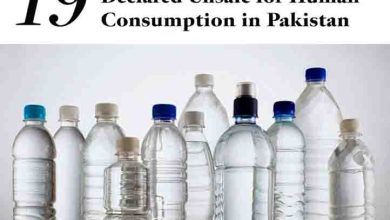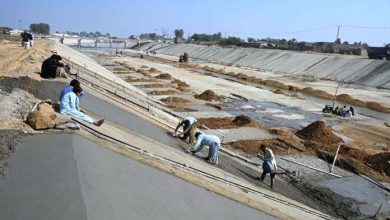Hope or Hurdles? Pakistan’s New Climate Minister Faces a Warming World
Pakistan’s new climate minister, Musadik Malik, discusses glacier melt, water politics, and the pursuit of climate justice in a warming world. Discover how Pakistan is tackling urgent climate challenges.
Pakistan’s new climate minister, Musadik Masood Malik, has stepped into one of the most difficult roles in the country’s federal cabinet. With glaciers melting, floods increasing, and diplomatic tensions rising, his appointment comes at a critical time for Pakistan — and the planet.
Pakistan’s Climate Crisis: A Minister’s New Challenge
In his first exclusive interview since his appointment in March 2025, Musadik Malik shared with Dialogue Earth the overwhelming scale of his responsibilities. Formerly in charge of the Ministry for Water Resources and Petroleum, Malik now leads the Ministry for Climate Change and Environmental Coordination — a task he describes as “urgent and daunting.”
At the heart of the problem are three interlinked crises:
- Air pollution and its economic burden
- Water pollution and access inequities
- Solid waste mismanagement and its carbon footprint
But the threat that keeps him up at night? Glacier melt in Pakistan’s north.
Glacier Melting and the GLOF Threat
With over 13,000 glaciers, Pakistan is second only to the polar regions in ice reserves. These glaciers are now under threat due to global warming.
“As populations grow, communities now live in the path of glacial hazards,” Malik says.
One of his first trips as climate minister was to Gilgit-Baltistan, where the UN’s GLOF-II project is helping reduce the risks of glacial lake outburst floods (GLOFs). These floods, caused by melting glaciers, can wipe out entire villages in minutes.
External Source: UNDP GLOF Project in Pakistan
Climate Justice on the Global Stage
While Pakistan secured USD 1.4 billion in climate financing from the International Monetary Fund’s Resilience and Sustainability Facility, Malik remains cautious.
“Pledges were made for the Loss and Damage Fund, but where’s the money?” he questions.
He criticizes the global climate finance structure, calling it biased and performative:
“Is it just the theatre of disaster, where we all speak fantastic English and make great speeches?”
At international forums like the Geneva Climate Summit, Malik has become a voice for the Global South — arguing that developing nations like Pakistan are paying the price for others’ pollution.
Water Wars and Domestic Disputes
At home, water has become one of the most divisive issues, especially with the controversial Six Canals Project in the Cholistan desert.
This project, which some believe could reduce water flow to Sindh province, has sparked widespread protests.
“We must base water distribution on science and technology, not politics,” Malik emphasizes.
He supports a national telemetry system to monitor water usage at interprovincial borders. This, he believes, will ensure transparency and equity in water distribution — and ease interprovincial tensions.
Internal Link: How Pakistan Can Improve Water Governance
Indus Waters Treaty: A Fractured Lifeline
Tensions with India over the Indus Waters Treaty (IWT) have escalated, especially after the Pahalgam attack. India’s decision to suspend the treaty was met with fierce opposition in Islamabad.
“If this treaty has no value, then no treaty in the world has value,” Malik warns.
India has also been accused of:
- Not holding required meetings between Indus commissioners
- Failing to share water data
- Using climate threats as political leverage
“Was Pahalgam used as an excuse to violate the treaty?” Malik asks.
For Pakistan, the IWT is not just about water — it’s about survival and sovereignty.
Nature Lost: A Minister’s Lament
While the policy battles rage on, Malik doesn’t lose sight of what’s quietly disappearing: Pakistan’s natural beauty.
“Where are the butterflies, the fireflies, the green parrots and bulbuls?” he asks.
The emotional weight of climate change, he says, is not just physical — it’s cultural. Poetry, folk songs, and the innocence of childhood are being lost to climate disasters.
“Floods and climate-induced disasters rob us of our culture,” Malik reflects.
Conclusion: From Crisis to Coordination
Pakistan’s new climate minister is navigating one of the most turbulent environmental and political landscapes in the world. His approach combines science, diplomacy, and empathy, aiming to restore not only balance in nature but also justice for those affected by climate change.
From glacier melt in Gilgit-Baltistan to water wars in Punjab and Sindh, and global negotiations in Geneva, Musadik Malik represents a new generation of leadership in Pakistan — one that acknowledges both the pain and potential of a changing world.
His ultimate goal? A fairer, cleaner, and greener Pakistan — one where the fireflies return, the canals flow equitably, and justice becomes the foundation of every policy.







